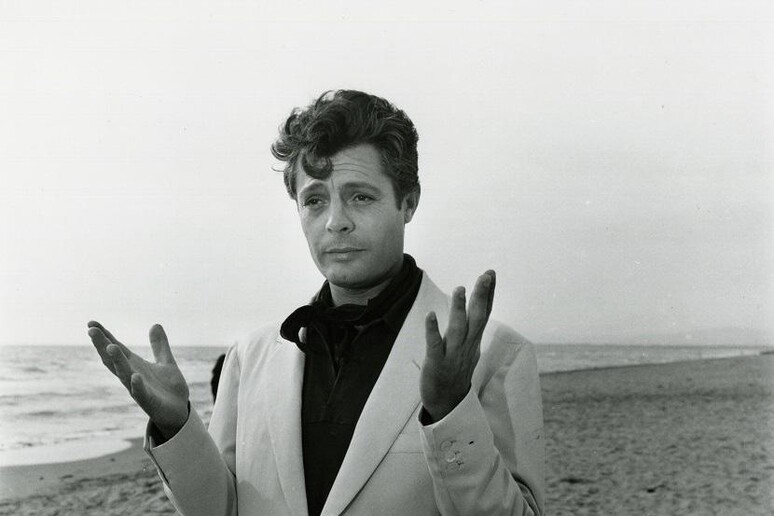An exhibit on movie icon Marcello Matroianni is opening Friday at Rome's Ara Pacis Museum to focus on the actor's self-deprecating irony.
A star who refused to be one, Mastroianni is presented to the
public through a selection of 600 photos, curated by Gian Luca
Farinelli.
The exhibit runs through February 17, 2019.
Photos, videos and scenes from Mastroianni's movies trace
back, with a hint of nostalgia, the life of an artist who said
he lived "between parentheses" an extraordinary existence on set
and on stage along with the many people he met throughout his
career.
The show opens with his myths, from Gary Cooper to Clark
Gable, as well as artists who have made Italy's movie history
such as Vittorio De Sica, Aldo Fabrizi and Anna Magnani to
document Mastroianni's incredible humility and how he
involuntarily became an international icon.
The actor's lightness and melancholic nature, his
intelligence and lack of vanity emerge from portraits of the man
and artist.
Visitors are provided an insight into his many films, in
particular Federico Fellini's La Dolce Vita and 8 e Mezzo,
through images that have become iconic.
The photos highlight his special relationship with Fellini,
as well as other directors including Mario Monicelli, Dino Risi,
Alessandro Blasetti, who first cast Mastroianni with Sophia
Loren, and Luigi Comencini.
The photos also give an insight into his theater productions,
including A Streetcar Named Desire, before which he famously
panicked and was dragged on stage by Vittorio Gassman, and then
his last performance in Le Ultime Lune (the last moons).
His self-deprecating style emerges from the narrative, along
with his refusal to be called a sex symbol and a great actor.
He chose his roles carefully and courageously, such as the
impotent protagonist of Il Bell'Antonio (the handsome Antonio)
directed by Mauro Bolognini and a homosexual in Ettore Scola's
Una Giornata Particolare (A Special Day).
The show also focuses on his modest childhood in Ciociaria, a
rural area in Lazio, and on the first movies he made to make
money, on his family and his beloved daughters Chiara and
Barbara, who has recently died.
The work portrayed by the show includes the documentary made
by his partner, Anna Maria Tatò, "Mi ricordo, sì, mi ricordo" (I
remember, yes, I remember).
The result is an insight into the story of a cultured,
elegant and sober man as well as of 50 years of Italian history.
"Mastroianni showed a very deep kind of irony - even in the
face of his imminent death, he spoke about life with joy and
this is a great teaching for us all", said the curator, Gian
Luca Farinelli.
He created his whole career on his own terms, noted Farinelli
and "he chose the right directors, he put actors at ease".
"He created a new type of Italian who did not prevaricate,
who was able to duet with actresses and who also knew how to
lose".
ALL RIGHTS RESERVED © Copyright ANSA











